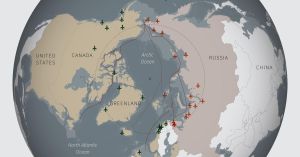The potential impact of U.S. tariffs on trade relations with the Netherlands is becoming increasingly significant as current trade tensions escalate, risking economic repercussions for Dutch businesses and consumers. President Donald Trump recently announced new import tariffs on several countries, including Canada, Mexico, and potentially the Netherlands, affecting various goods.
The grappling economic climate has raised concerns among experts. Klaas Knot, president of De Nederlandsche Bank, remarked, "This is a game where there are only losers." His words reflect widespread anxiety about the ramifications of such trade barriers. He noted the long-standing benefits of global trade, but he cautioned, "Consumers will eventually pay the price."
Accompanying Trump’s tariffs is the specter of inflation, as higher import costs could easily lead to increased prices for everyday goods—a scenario reminiscent of events during Trump’s first term when tariffs on washing machines inflated prices across markets.
Bert Colijn, chief economist at ING, shed light on these dynamics. He pointed out, "These tariffs function as extra taxes," implying the burden will likely shift to consumers. He noted the Netherlands' reliance on exports, particularly to the U.S. economy, warning of potential fallout if the tariffs materialize. He added insightfully, "Americans simply buy a lot of products,” indicating the demand remains intact even amid tariff tensions.
The tariffs were originally justified by Trump as necessary measures to address issues related to fentanyl, drugs, and undocumented immigration. The political undertones of these decisions highlight the unpredictability of U.S. trade policy. Paul Schockman of Freshclusive noted this uncertainty, asserting, "Who can say with Trump? He swings from left to right, makes all kinds of statements, and then does whatever suits him."
This tumultuous backdrop prompted Remco Beekman from Soho Produce to comment, "This is going to have quite an impact." He anticipates significant repercussions, particularly within the fresh produce sector which heavily relies on imports from Canada and Mexico. Both countries provide seasonal supply chains, which the U.S. depends on, particularly during the summer months. "Fruiting vegetables will be hit the hardest," he cautioned.
Details continue to emerge as Canadian and Mexican tariffs (25%) are confirmed, leaving Dutch exporters uncertain of their standing. Marcel van der Pluijm of Feeling Fresh articulated this anxiety: "If Canada, which follows a similar growing season to the Netherlands, is hit, we could also face similar measures." He expressed hope for exclusion but acknowledged the reality of broad tariff applications across sectors.
The situation highlights the stronger U.S. dollar, posing both challenges and opportunities for Dutch exporters. While it makes their products more appealing to American buyers, it also casts light on existing trade imbalances. Colijn noted, "The Netherlands is a major exporter to the U.S., particularly in technology and agriculture," balancing optimism with caution about shifting trade dynamics.
Ongoing trade negotiations between the U.S. and the EU are also under scrutiny. The European Commission appears readying countermeasures if tariffs on European goods hit the ground, reflecting historical patterns where response tariffs are levied to protect local industries.
No matter the outcome of negotiations, the overarching sentiment indicates potential losses for consumers. New Green's Leon Bol summarized this sentiment succinctly: "We are monitoring the situation closely"—an echo of the concerns reverberated by the Dutch business community.
Whether the ultimate costs of these tariffs rest on the shoulders of the American consumer or inflict broader economic strains on Dutch exporters remains to be seen. Still, one thing is clear: as tensions rise, cooperation appears imperative, emphasizing the need for diplomatic engagement to avert what could otherwise devolveInto rampant trade hostilities.



